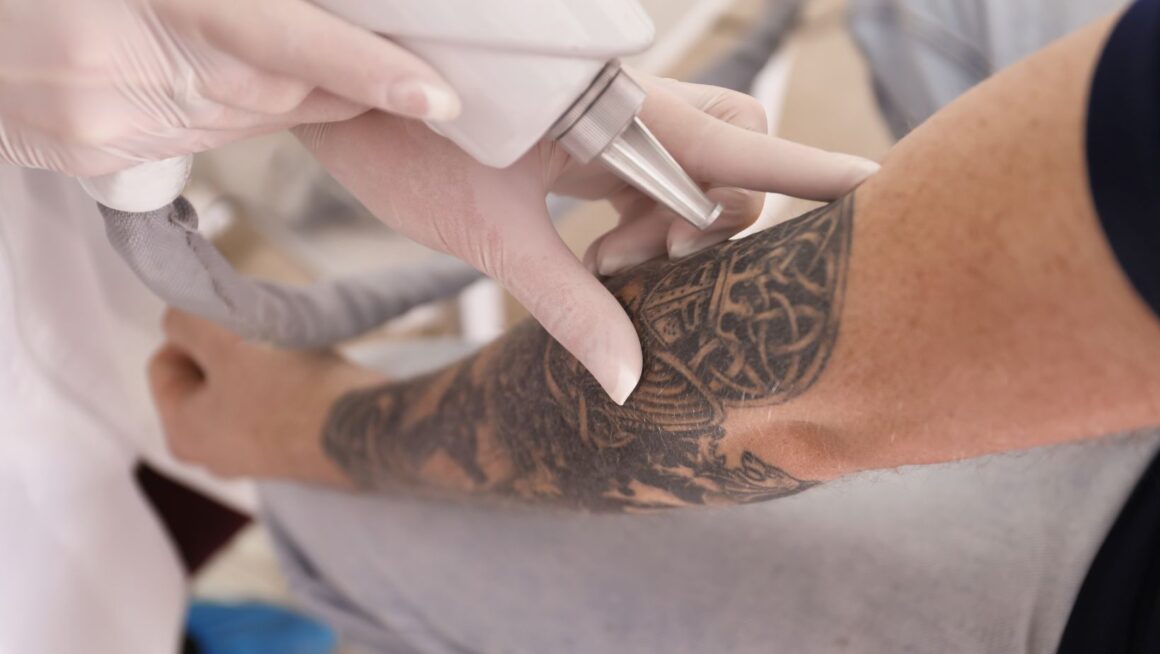Tattoos have become increasingly popular in recent years, with more and more individuals proudly showcasing their ink. However, alongside this trend, there has also been a rise in tattoo removal procedures. People choose to remove their tattoos for a variety of reasons, each one deeply personal and unique to the individual.
In this article, we will explore the top 5 reasons why individuals opt for tattoo removal. From feelings of regret to career considerations, we will delve into the motivations behind this growing trend of removing tattoos.
Regret can be a significant factor in the decision to get tattoos removed. As personal tastes and preferences change over time, some individuals may find themselves no longer drawn to the design they once loved. This change in personal taste can lead to a desire to erase the tattoo and move forward with a blank canvas.
Career advancement and workplace policies also play a role in the decision to remove tattoos. While tattoos were once seen as symbols of rebellion, some industries have strict policies regarding visible ink. Individuals seeking job prospects and professional growth often choose to remove their tattoos to conform to these workplace regulations and present a more polished image.
Relationship endings can be another driving force behind tattoo removal. Tattoos that were once meant to symbolize love and commitment can become painful reminders after a breakup or divorce. Removing these reminders can be an essential step in the healing process and a way to move on from the past.
Lastly, some individuals choose tattoo removal due to unsuccessful attempts at cover-ups. While cover-up tattoos can be a viable option for some, others may find that their efforts to conceal unwanted ink have fallen short. In these cases, the decision to remove the tattoo altogether becomes a way to ensure a clean slate.
Regret and Change of Personal Taste
When it comes to getting tattoos, many people fail to consider the long-term implications. They may make impulsive decisions based on current interests or trends, only to later experience a change in personal taste or preferences. This change can lead to feelings of regret over their tattoo choices.
Tattoo regret is a common reason why individuals seek tattoo removal procedures. It can stem from a desire to align their body art with their evolving sense of self or to distance themselves from a past version of themselves. The emotional impact of tattoo regret should not be underestimated, as it can affect one’s self-confidence and overall well-being.
As individuals grow and mature, their aesthetics, values, and interests may evolve. Tattoos that once held deep meaning or represented an important phase in their lives may no longer resonate with their current identity. In such cases, tattoo removal offers an opportunity for individuals to reclaim their bodies and express their changing selves.

Whether it’s a design that no longer reflects their values or a symbol tied to a past interest, these evolving preferences drive individuals to seek tattoo removal procedures. By acknowledging and accepting the changes in their personal taste, individuals can make informed decisions about their tattoos and take steps towards a tattoo-free future. Realize the freedom of a tattoo-free future with expert services like those found at Tattoo Removal Brisbane Clinic.
Career Advancement and Workplace Policies
In today’s professional world, job prospects and maintaining a professional image are top priorities for many individuals. As tattoos have become more prevalent in mainstream culture, the impact of visible ink on career opportunities cannot be ignored. Certain industries and workplaces have strict tattoo policies and restrictions that may limit job prospects for individuals with visible tattoos.
The desire for career advancement often drives individuals to remove their visible tattoos. A professional image that aligns with the expectations of employers and clients is crucial in many fields. Tattoos that were once seen as rebellious or eccentric may now be perceived as unprofessional or inappropriate.
Corporate attitudes towards tattoos have evolved over the years, with some companies relaxing their policies to accommodate the changing social norms. However, many industries, such as finance, law, healthcare, and customer-facing roles, still maintain strict tattoo restrictions. In such cases, individuals may choose to remove their tattoos to improve their chances of landing a job or to comply with workplace policies.
Job prospects and professional image:
Tattoos that are visible in professional settings can create challenges when it comes to securing employment and advancing in a career. While society’s perception of tattoos has shifted, certain industries maintain conservative norms that prioritize a clean-cut appearance. For individuals seeking job opportunities in these fields, tattoo removal becomes a viable option to enhance job prospects and project a more corporate-friendly image.

Impact of tattoo policies and restrictions:
Companies and organizations implement tattoo policies to maintain a consistent brand image, cater to clients’ expectations, or adhere to safety regulations. These policies often restrict visible tattoos or require employees to cover them during work hours. Those with tattoos may find it difficult to comply with these policies and opt to remove their ink to align with their employers’ expectations.
By understanding the importance of job prospects and professional image, individuals are motivated to remove visible tattoos. The evolving shifts in corporate attitudes towards tattoos and the impact on workplace policies further encourage individuals to make the decision to remove unwanted ink.
Relationship Endings and Cover-Up Failures
Tattoos hold deep personal meanings, often serving as symbols of relationships and love interests. However, when these connections come to an end, these once-cherished tattoos can become painful reminders of what was. The desire to move on from the past drives individuals to seek tattoo removal as a means of erasing these reminders and starting anew.
Moreover, there are instances where attempts to cover up unwanted tattoos have gone awry. Despite the initial intention to transform the tattoo into something new, cover-up tattoos can sometimes fall short of expectations. When a cover-up fails to effectively conceal the original design, individuals may feel even more compelled to remove the tattoo entirely.
Whether it’s the lingering presence of an ex-partner’s name or an unsuccessful cover-up, the emotional weight carried by these reminders can be overwhelming. Tattoo removal becomes the solution for those seeking closure and a fresh start, allowing individuals to reclaim their bodies and move forward with confidence.
Conclusion
After exploring the multitude of reasons behind tattoo removal, it’s clear that this decision is deeply personal and varies from individual to individual. Whether it’s the result of regret over a hasty tattoo choice, the need for professional advancement, or a desire to move on from past relationships, tattoo removal is becoming increasingly popular.
Understanding these motivations allows individuals to make informed decisions about their own tattoos. By recognizing the impact that changing preferences, workplace policies, and emotional reminders can have, people are empowered to explore the options available for tattoo removal.
If you’ve been contemplating getting a tattoo removed, remember that it’s never too late to start your journey to clear skin. Consult with a reputable tattoo removal specialist who can guide you through the process and discuss the best approach for your unique situation. Don’t let a tattoo hold you back from embracing a future that reflects your current self.



